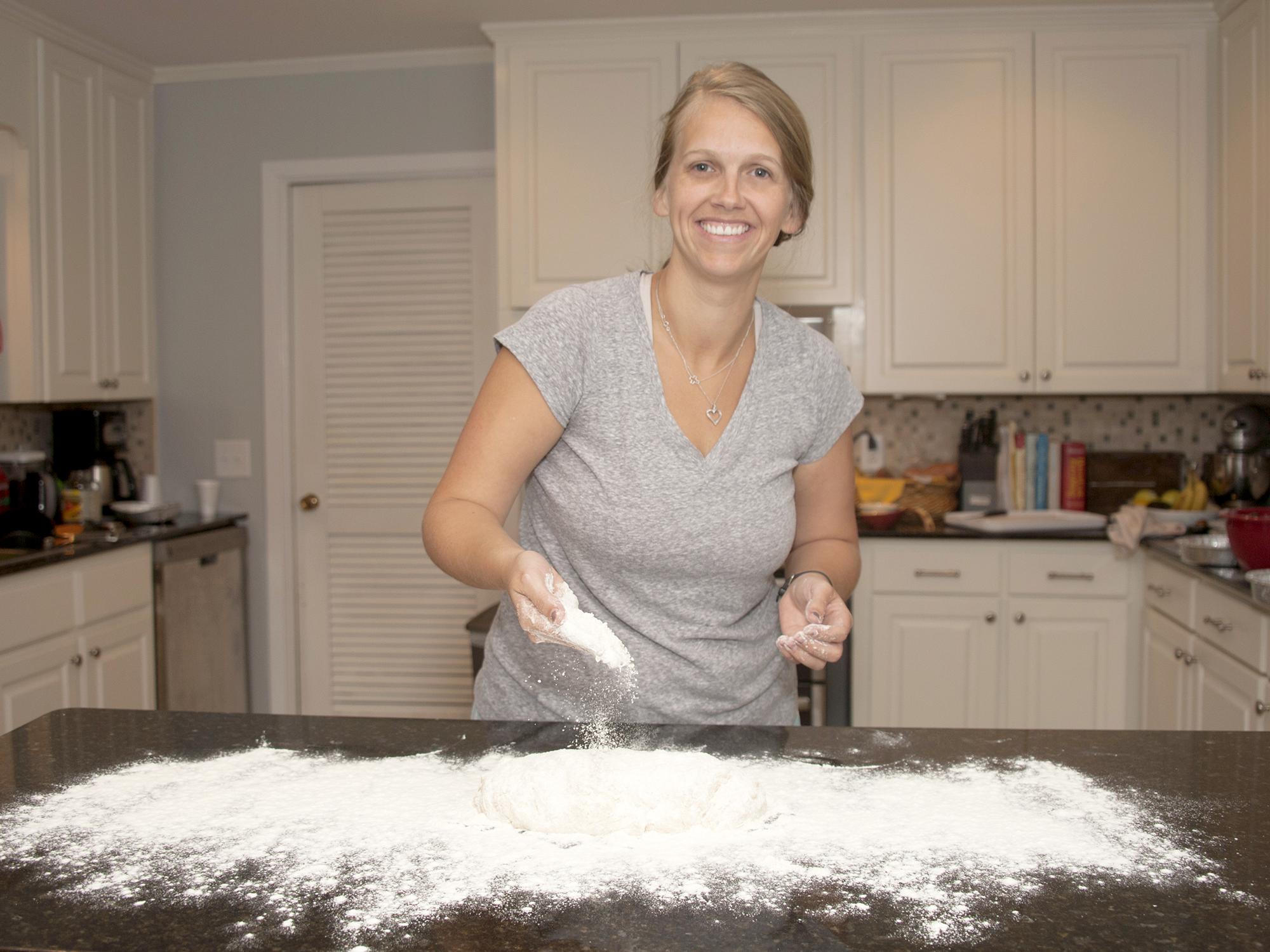Information Possibly Outdated
The information presented on this page was originally released on October 5, 2016. It may not be outdated, but please search our site for more current information. If you plan to quote or reference this information in a publication, please check with the Extension specialist or author before proceeding.
State cottage food laws allow home businesses
STARKVILLE, Miss. -- A recipe for cinnamon rolls that she found in college turned into a profitable hobby business and now a cottage industry for Christa Lee and her husband, Tyson.
Their business, LoveLee Rolls, sells pans of baked cinnamon rolls at the Starkville farmers market all summer and by word of mouth the rest of the year.
“We started in July 2014. I was staying home with the baby, and we didn’t really need more money -- just thought it would be a fun hobby,” Christa Lee said. “On the way home from the beach one day, we said, let’s just do it.”
They started learning about cottage food laws and began selling to friends and friends of friends. Around football season, their business began to take off.
“We decided to do the farmers market starting in April, and to do this, we absolutely had to operate under the cottage food law,” she said.
Cottage products are specific types of food that can be made in a home kitchen. The state’s cottage food industry laws let entrepreneurs package for sale a little bit of the flavor that makes up the Mississippi experience.
The Mississippi State Department of Health oversees cottage food operations in the state. Products that can be sold as cottage foods do not require refrigeration, and total sales each year must not exceed $20,000.
Numbers are hard to pin down for the state’s cottage food industry because the state does not require permits or licenses for these businesses. However, the U.S. Department of Agriculture tracks farmers markets, and its data show a steady increase in numbers over the last several years. In Mississippi, USDA data show there are 81 farmers markets, and these are major outlets for the cottage foods industry.
Courtney Crist, Mississippi State University Extension Service food safety specialist, pinpointed one reason this industry is growing: It gives Mississippi residents the opportunity and convenience to make and sell their products using their favorite recipes in their home kitchens.
“The interest in cottage foods is growing due to the interest to make and buy local products,” Crist said. “The income generated may assist and increase the economic livelihood of communities because the income stays local, giving those who make cottage foods extra income while pursuing a culinary hobby.”
Common cottage food products are baked goods, candies, dried pasta, fruit pies, granola or trail mixes, and jams and jellies.
According to the Mississippi State Department of Health website, “The Cottage Food Bill allows food entrepreneurs to operate small food businesses and produce a variety of food products that are low risk from a food safety standpoint, if prepared properly in a private home kitchen. The allowable products list is based on the food safety risk level associated with certain types of food.”
Mississippi’s law requires food made in a cottage industry to be labeled with information including the ingredients, allergen information as specified by federal law, the name and address of the business, and a disclaimer that states the product was made in a cottage operation.
Christa Lee said the biggest challenge presented by the cottage food law to her business is the provision forbidding online and social media advertising of cottage food industries. Not many other states’ cottage food laws restrict online advertising, she said.
“Selling at the farmers market is great, but it’s such a short season,” she said. “As we’ve grown, that has been our biggest limitation.”
The MSU Extension Service offers a variety of training programs, support and educational material to help those involved or interested in cottage food industries. Extension publications, such as “The Complete Guide to Home Canning” and many more, can be found at http://www.extension.msstate.edu. Additionally, MSU Extension offers a variety of programs that support the cottage food industry, including Food as a Business, Acidified Canned Foods and General Food Safety Training.










